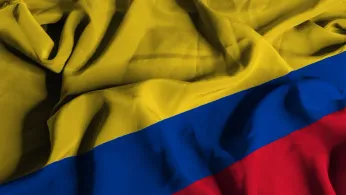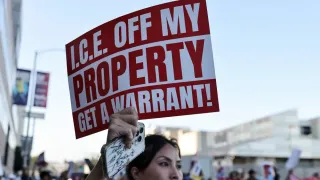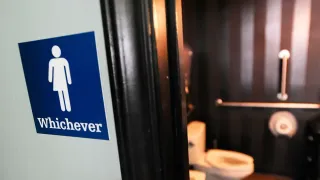
5 hours ago
Colombia’s Queer Communities Endure Escalating Violence Amid Armed Group Control
READ TIME: 3 MIN.
Colombia, often lauded for its progressive legal framework supporting the rights of lesbian, gay, bisexual, transgender, queer, intersex, and gender-diverse people, has seen a troubling surge in violence targeting these communities, especially in conflict-affected regions. According to the NGO Colombia Diversa, 159 LGBTQ+ people were killed in 2023, with at least 32 suspected cases rooted in prejudice. Many such attacks are reported in rural areas, where armed groups wield control and state presence is minimal.
A growing body of evidence details how non-state armed groups—such as dissident factions of the FARC, the ELN, and criminal organizations—have explicitly targeted LGBTQ+ individuals. In areas like Catatumbo, some armed actors have declared LGBTQ+ people a “military objective,” issuing threats that force them to flee for their lives. These threats and violent acts are used not only to enforce rigid social norms but also as tools of terror, sending chilling messages to the broader community about the consequences of nonconformity.
The absence of effective state authority in these regions means national protections for LGBTQ+ people are largely unenforced. As a result, many face forced displacement, seeking safety in larger cities or neighboring countries—often struggling to access support due to the disconnect between Colombia’s legal guarantees and the reality on the ground.
Despite recent measures, such as the Attorney General’s Office establishing a special unit to investigate crimes motivated by sexual orientation or gender identity, progress remains slow and uneven. The Inter-American Commission on Human Rights (IACHR) recently conducted an on-site mission in Colombia, highlighting “the persistence of violence against the LGBTI population and the barriers they face in accessing justice, especially in territories affected by the armed conflict.” Civil society groups report chronic impunity: many cases are either never investigated, or investigations are deeply flawed and delayed.
The IACHR notes that bias-motivated violence in Colombia is not isolated; instead, it reflects entrenched societal rejection rooted in patriarchal norms. The lack of prompt and thorough state response perpetuates this violence, reinforcing the perception that LGBTQ+ lives are less valued and contributing to a climate of fear and exclusion.
On paper, Colombia boasts some of the Americas’ strongest legal safeguards for LGBTQ+ rights, comparable to or surpassing those in countries like Argentina and Brazil. Yet, actual protections are undermined by persistent discrimination, violence, and weak enforcement, particularly outside urban centers. This disconnect has real consequences: many LGBTQ+ Colombians seeking asylum abroad are denied claims because legal protections create the illusion of safety—despite the prevalence of homophobic and transphobic violence.
UN human rights experts have echoed this concern, urging Colombian authorities to close the gap between legislative progress and lived realities. Graeme Reid, the UN Independent Expert on protection against violence and discrimination based on sexual orientation and gender identity, praised Colombia’s commitment to equality but emphasized the “stark disconnect” faced by LGBTQ+ people in daily life.
Transgender women, Afro-Colombian and Indigenous LGBTQ+ individuals, migrants, and activists are especially vulnerable. Recent reports from grassroots organizations and international bodies detail disproportionate violence, including extreme cruelty in attacks on LGBTQ+ people, and a troubling rise in killings of women human rights defenders. The intersection of gender, ethnicity, and social status compounds risks, making advocacy and daily life perilous for many.
International organizations have called on Colombian authorities to immediately strengthen investigative and preventive measures, particularly in regions where armed conflict and violence persist. Recommendations include better coordination between national and local agencies, active consultation with LGBTQ+ civil society, and educational initiatives to combat the stereotypes and prejudices fueling violence.
Despite these challenges, Colombia’s LGBTQ+ advocacy groups remain resilient. Organizations such as Caribe Afirmativo, Colombia Diversa, and a growing network of local activists continue their fight for justice, protection, and full equality. Their work is vital not only for the safety of LGBTQ+ Colombians, but also for shaping a society that values human rights and diversity.
As Colombia confronts the ongoing impacts of armed conflict and social exclusion, the experiences of its LGBTQ+ communities underscore the urgent need for meaningful change—where rights on paper translate into safety, dignity, and freedom in everyday life.






